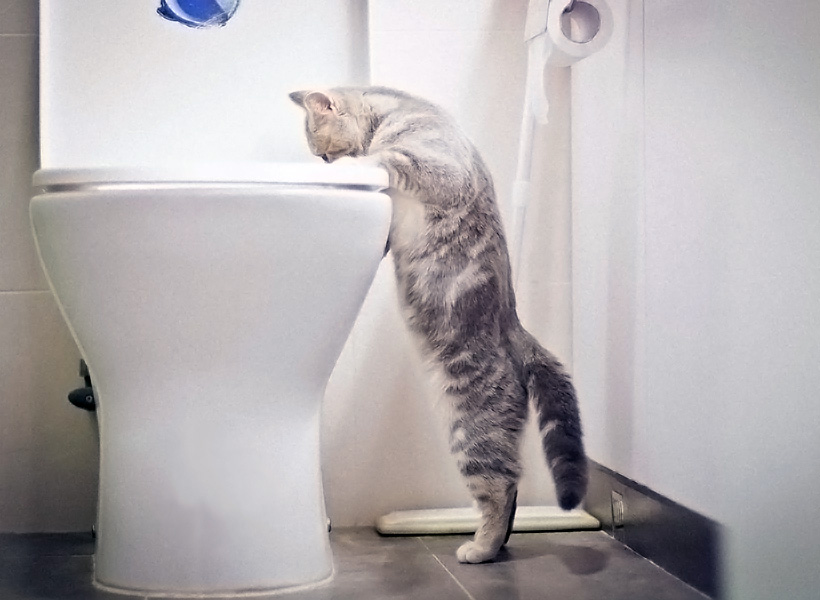The Risks of Flushing Cat Poop in Your Toilet - Preventive Steps
The Risks of Flushing Cat Poop in Your Toilet - Preventive Steps
Blog Article
This great article in the next paragraphs on the subject of Don’t flush cat feces down the toilet is totally informative. You should check this stuff out.

Intro
As cat proprietors, it's essential to bear in mind just how we deal with our feline friends' waste. While it might appear practical to purge cat poop down the toilet, this technique can have damaging consequences for both the setting and human wellness.
Alternatives to Flushing
The good news is, there are safer and much more responsible methods to get rid of feline poop. Consider the following alternatives:
1. Scoop and Dispose in Trash
One of the most typical approach of dealing with feline poop is to scoop it into a biodegradable bag and toss it in the trash. Make certain to make use of a devoted litter inside story and take care of the waste quickly.
2. Usage Biodegradable Litter
Opt for biodegradable feline litter made from products such as corn or wheat. These trashes are environmentally friendly and can be securely disposed of in the trash.
3. Hide in the Yard
If you have a lawn, consider burying cat waste in a marked location away from vegetable gardens and water resources. Make sure to dig deep enough to prevent contamination of groundwater.
4. Install a Pet Waste Disposal System
Purchase a pet garbage disposal system especially created for pet cat waste. These systems make use of enzymes to break down the waste, minimizing smell and ecological impact.
Wellness Risks
In addition to ecological problems, flushing feline waste can additionally posture health risks to human beings. Cat feces might consist of Toxoplasma gondii, a parasite that can trigger toxoplasmosis-- a potentially serious illness, especially for expecting ladies and people with damaged body immune systems.
Environmental Impact
Flushing feline poop introduces hazardous pathogens and bloodsuckers into the supply of water, presenting a substantial threat to marine ecosystems. These impurities can adversely influence aquatic life and compromise water top quality.
Final thought
Responsible animal possession prolongs past supplying food and sanctuary-- it additionally entails correct waste monitoring. By avoiding flushing pet cat poop down the toilet and opting for alternate disposal techniques, we can lessen our ecological footprint and safeguard human wellness.
Why You Should Never Flush Cat Poop Down the Toilet
A rose by any other name might smell as sweet, but not all poop is created equal. Toilets, and our sewage systems, are designed for human excrement, not animal waste. It might seem like it couldn’t hurt to toss cat feces into the loo, but it’s not a good idea to flush cat poop in the toilet.
First and foremost, assuming your cat uses a litter box, any waste is going to have litter on it. And even the smallest amount of litter can wreak havoc on plumbing.
Over time, small amounts build up, filling up your septic system. Most litter sold today is clumping; it is made from a type of clay that hardens when it gets wet. Ever tried to scrape old clumps from the bottom of a litter box? You know just how cement-hard it can get!
Now imagine just a small clump of that stuck in your pipes. A simple de-clogger like Drano isn’t going to cut it. And that means it’s going to cost you big time to fix it.
Parasitic Contamination
Believe it or not, your healthy kitty may be harboring a nasty parasite. Only cats excrete Toxoplasma in their feces. Yet it rarely causes serious health issues in the cats that are infected. Most people will be fine too if infected. Only pregnant women and people with compromised immune systems are at risk. (If you’ve ever heard how women who are expecting are excused from litter cleaning duty, Toxoplasma is why.)
But other animals may have a problem if infected with the parasite. And human water treatment systems aren’t designed to handle it. As a result, the systems don’t remove the parasite before discharging wastewater into local waterways. Fish, shellfish, and other marine life — otters in particular — are susceptible to toxoplasma. If exposed, most will end up with brain damage and many will die.
Depending on the species of fish, they may end up on someone’s fish hook and, ultimately on someone’s dinner plate. If that someone has a chronic illness, they’re at risk.
Skip the Toilet Training
We know there are folks out there who like to toilet train their cats. And we give them props, it takes a lot of work. But thanks to the toxoplasma, it’s not a good idea.

We had been guided to that editorial on How to Dispose of Cat Poop and Litter Without Plastic Bags from someone on our other web property. Sharing is caring. Helping people is fun. I am grateful for your time. Visit again soon.
Schedule A Service Call Report this page